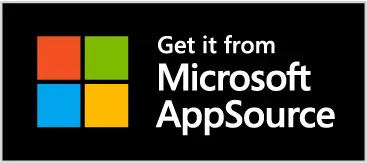The acronym "TAPAS" originated from a presentation to the leadership team responsible for the Joint Strike Fighter (F-35) that was provided during a visit to Washington, D.C.

The presentation was about how to manage and best utilize the enormous amount of data they were receiving from many different sources. (The supply chain for the sections that went into the three F-35 variants, for example, is distributed across many countries around the world and had produced an avalanche of data.) This acronym was thus conceived to help them make sense of their data:
T - Timely
A - Accurate
P - Personalized
A - Actionable
S - Secure
Timely
Data becomes less valuable over time: last week's newspaper provides little or no value when making a decision based on today's weather. Even after multi-tier supply chain visibility software is used to link the parts on a bill of materials (BOM) to the specific companies that manufacture those parts, real-time data is critical when making the time-sensitive decisions necessary to reduce the severity of identified problems, and to prevent the excuse "there is nothing I could have done about it."
Effective statistical process control (SPC), with real-time alerts occurring when a process breaches control limits rather than just spec limits, acts as a "canary in the coal mine" that provides warning before subsequently produced parts are damaged or scrapped. If this data is not timely, then it's merely a worthless historical reference; data analysis is only fresh and valuable when the data is also fresh.

Accurate
If data is not accurate, then not only does it have no value, it can be actively dangerous: policy decisions based on inaccurate data can have disastrous consequences. Measuring tools are the primary method for indicating manufacturing accuracy and the capability of a process, and can provide direct input to statistical process control (SPC) software solutions. The accuracy of this data has an impact on many things, from whether a part meets its specifications, to the statistical sampling plan appropriate to the part's level of process control.
One way to make sure data capture is accurate is to make sure that tools are calibrated on a regular basis. Tool calibration tracking software solutions can manage this by calculating and tracking the dates when each tool will need to be recalibrated, which thereby ensures that measurements are always taken with appropriately calibrated tools.
Accuracy is also required when determining the root cause of a non-conformance. For an appropriate corrective action to be taken, a root cause must be suitably granular: its definition must be broad enough to group together similar issues issues that can be tracked together in a nonconformance software solution and eliminated with a single corrective action, but not so general that no single corrective action can solve the problem.
Personalized
If data is not personalized, then it is much less likely to be used. If it requires effort for an individual to sort through reports and data points to find the information they need, then they will rapidly lose interest in the data altogether. Data needs to be organized in such a manner that it becomes obvious to the user what action needs to be taken and why they have received the data in first place.
Additionally, when data is appropriately targeted toward an individual, then it becomes possible to know exactly what information they have received and viewed. This makes each recipient individually accountable for taking action based on the information received.
Actionable
Traditional quality departments have produced mountains of data that fall into the "nice to know, but so what" category. (Or the "Whatever!" category, for short.) Personalizing this data helps organize it in a way that allows efficient action to be taken.
By contrast, unorganized data is more difficult to use effectively because not all of it requires action. By eliminating clutter and providing only actionable data, supervisors can ensure that time is spent on the items that need it most.
Secure
Who has the authority to access your data? Your overall cybersecurity depends on always knowing the answer to this question. What may not be obvious is that you must know the answer both in theory and in practice, which means logging all access (and even attempted access) to restricted information.

Technical data can be restricted on the basis of export control regulations such as ITAR and EAR. If an unapproved person attempts to access information that is tightly ITAR-controlled, then the attempt needs to be recorded and communicated to individuals who can determine whether it was done intentionally or inadvertently. Many forms of data used in the aerospace industry need to be secured in this manner, including First Article Inspection Reports (FAIRs), control plans, inspection reports, and all documentation related to Advanced Product Quality Planning (APQP) and the Production Part Approval Process (PPAP).
The TAPAS acronym has not only given members of the Joint Strike Fighter leadership team something memorable to take away with them, but has also guided our team's innovations and software development practices, and continues to do so on an ongoing basis. With millions of datapoints in our system gathered for our customers internally and across their supply bases, it is critical that we ensure the data is presented to customers in a timely, accurate, personalized, actionable, and secure manner.
Please contact the Net-Inspect Team at [email protected] or +1 425-233-6176 if you are interested in exploring how we can help you and your organization benefit from TAPAS data as well. If you would like a live demo or phone consultation today, then click the Contact Us button below.

